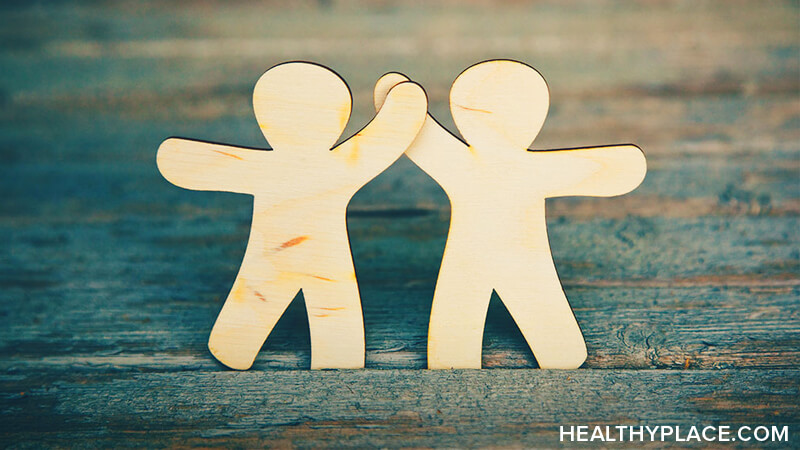How Do I Care for Myself Like I Care for Others?

This week, I received a text from a longtime friend that sent me into an emotional tailspin. As a result, all motivation to care for myself evaporated into thin air. This news she shared was heavy to process, obviously, because I don't want to see her suffer, but also because I have firsthand experience with the issue she is facing.
But personal feelings aside, she had come to me for support, so I wasted no time jumping into action. I listened. I encouraged. I reassured. I empathized. Then I withdrew into the haze of my own thoughts, where I internally spiraled for the next several days.
This is a classic pattern of mine. I never hesitate to rally behind those I love, but I often sacrifice my wellbeing in the process. So how do I care for myself like I care for others? I am not exactly sure, but I suspect it's a crucial facet of eating disorder recovery.
It's Hard to Care for Myself Like I Care for Others
I will be the first to admit it: self-care is hard for me. No matter how many coping mechanisms and therapeutic strategies I have accumulated over the years, I still feel uncomfortable tending to my own mental and emotional health. If someone needs me, I will be there in a heartbeat. But when it comes to caring for myself? I have a hard to doing that.
As an adolescent, I taught myself to be invulnerable, and it's a lesson I never quite unlearned. Sure, that mentality often leads to burnout—but I rarely weigh those consequences. I stuff down the painful emotions, manufacture a tough, stoic expression, and then stubbornly press on until I can't anymore. This approach is neither effective nor sustainable in the long term. I would not prescribe it as a solution for anyone else, so why do I force it on myself?
When I ignore the reality that I am a human with weak spots, unresolved hurts, complex emotions, and basic needs, I might as well just invite my eating disorder behaviors to take control again. I could use the excuse that it's difficult to care for myself like I care for others, so why put in the effort? But recovery often means doing what feels unnatural, scary, or hard.
Learning How to Care for Myself Like I Care for Others
Let's return to the conversation with my friend earlier this week. In these types of situations, I should not have to choose between either showing up for a loved one or protecting my own boundaries. I can do both—even if it requires learning a brand-new way to operate.
I can be available for my friend, then check in with my mental health afterward. I can prioritize her needs without brushing off mine. I can treat myself with the same gentleness I so freely offered her. The alternative is continuing to pretend that nothing fazes me, which usually results in an eating disorder relapse. I started this post with the question: How do I care for myself like I care for others? But the answer is simple. I won't be useful to anyone else if I am running on empty behind the scenes. Self-care is not a frivolous afterthought—it's an essential part of healing.
APA Reference
Schurrer, M.
(2023, July 13). How Do I Care for Myself Like I Care for Others?, HealthyPlace. Retrieved
on 2026, February 25 from https://www.healthyplace.com/blogs/survivinged/2023/7/how-do-i-care-for-myself-like-i-care-for-others